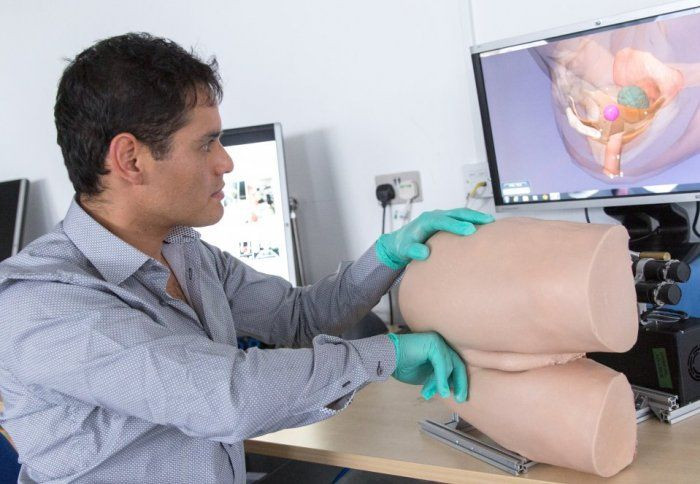Imperial College London develops prosthetic buttocks & rectum to detect prostate cancer
But UK’s human rectal teaching assistant may lose job

A new guidance from Britain’s National Institute for Health and Care Excellence, released in mid-June, approved the use of laser treatment for prostate enlargement. To help doctors and nurses detect prostate cancer, the Imperial College London developed prosthetic buttocks and rectum.
The prosthetic buttocks and rectum, presented at the Eurohaptics conference this week, helps train medical workers to perform rectal examinations – one of the ways to detect prostate ailments – by recreating accurately the feel of a rectum. It also provides feedback on the examination technique used by the physician or nurse.
The device features small robotic arms that apply pressure to the silicone rectum to recreate the shape and feel of the human backdoor. The gadget is also now being adapted for gynaecological examination.
In coming up with the device, the college scanned several volunteers using MRI and used the images to perfect the shape and geometry of the prosthetic buttocks and rectum, discloses Dr Alejandro Granados, leader of the development of the robotic rectum. The device is expected to cost £10,000 (A$17,303).
During rectal examination, the doctor places an index finger into the anus to feel the prostate gland, located under a man’s bladder which could be felt inside the anus through the rectal wall. Doctors say that many men suffer from prostate enlargement when they reach their 50s which is why a yearly prostate test is recommended for men in their 40s. However, while 75 percent of the enlargement for men in their 70s is benign, it causes some problems such as frequent urination at night.
Dr Fernando Bello, from the college’s Department of Surgery and Cancer, notes that internal examinations are challenging for doctors to learn and teach since the examination happens in the body wherein the trainer cannot see what the trainee is doing or vice versa. Most trainees also rarely get the opportunity to practice the examination since few patients would agree to have their private parts probed as practice for trainees.
However, there is one man registered in UK who does that for a living. But the Rectal Teaching Assistant could likely lose his job to the prosthetic substitute, reports Theregister.
VIDEO: Robotic rectum may aid prostate cancer diagnosis





















